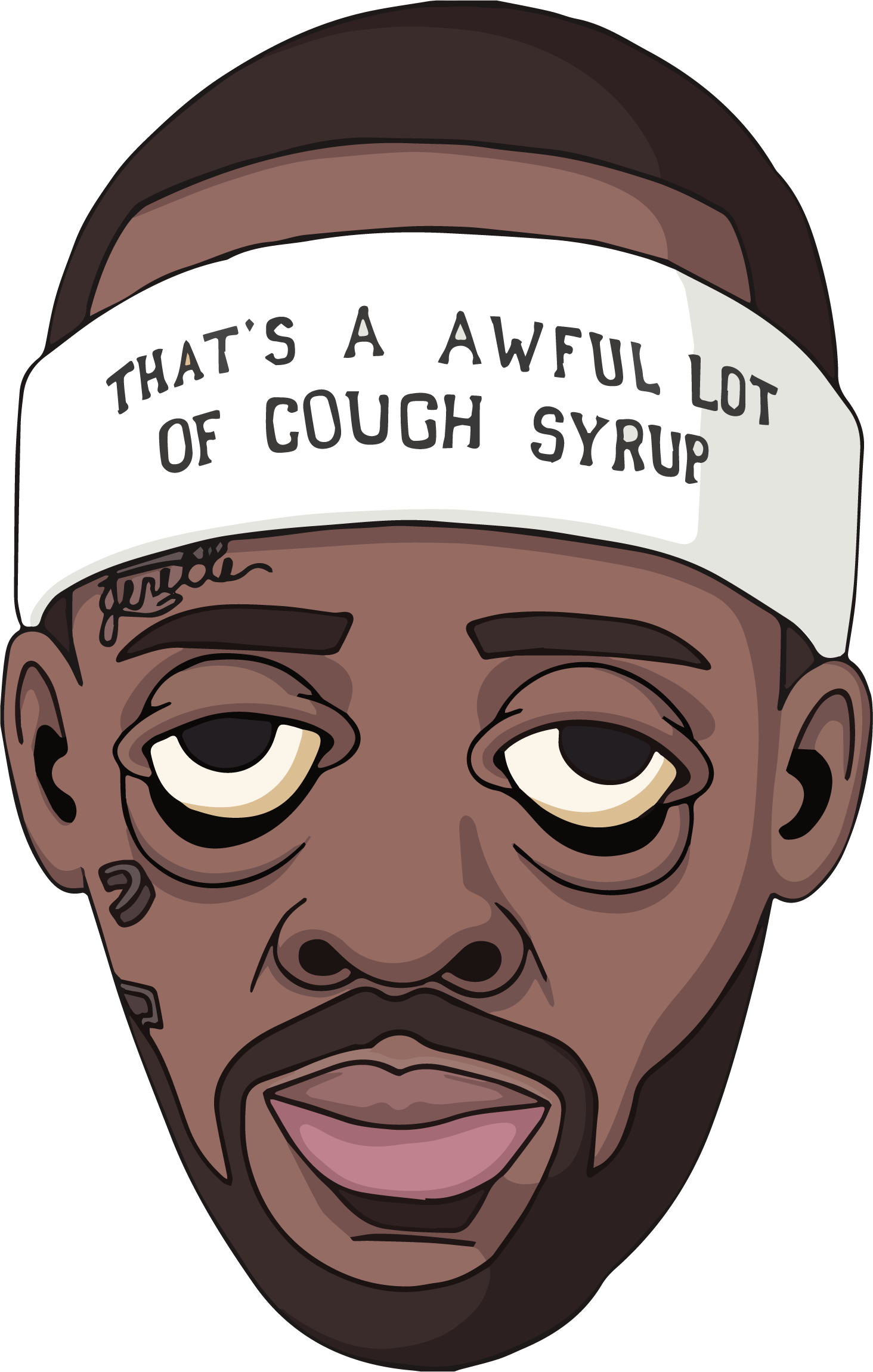In recent years, the phrase "that's a awful lot of cough syrup" has become a popular meme, but it also highlights a serious issue in our society today. Cough syrup, often seen as a simple over-the-counter remedy for a common cold, can pose significant risks when misused or overconsumed. The reality is that the ingredients in cough syrup can lead to dangerous side effects and dependency if not used responsibly. In this article, we will delve deep into the world of cough syrup, exploring its uses, risks, and the broader implications of its consumption.
The misuse of cough syrup has become a troubling trend, particularly among younger populations. This article aims to educate readers on the importance of understanding the ingredients and potential dangers of cough syrup. By raising awareness, we hope to foster responsible use and encourage individuals to consider the long-term effects of their choices. Whether you're a parent, a healthcare professional, or just someone curious about the subject, this article will provide valuable insights.
As we navigate through this topic, we will cover various aspects, including the types of cough syrups available, their ingredients, the risks associated with misuse, and how society can address this growing concern. Through expert insights and reliable data, we aim to build a comprehensive understanding of why it's essential to approach cough syrup with caution.
Table of Contents
- 1. Types of Cough Syrups
- 2. Active Ingredients in Cough Syrups
- 3. Effects of Cough Syrup Misuse
- 4. Dependency and Addiction Risks
- 5. Societal Implications of Cough Syrup Abuse
- 6. Prevention and Awareness Strategies
- 7. Expert Opinions on Cough Syrup Use
- 8. Conclusion
1. Types of Cough Syrups
Cough syrups come in various formulations, each designed to address specific symptoms or conditions. Understanding these types can help consumers make informed choices.
- Expectorants: These help loosen mucus, making it easier to cough up.
- Antitussives: These suppress the cough reflex and are useful for dry, tickly coughs.
- Combination Syrups: Many over-the-counter options combine ingredients to target multiple symptoms.
- Prescription Syrups: These may include stronger medications and are prescribed for more severe conditions.
2. Active Ingredients in Cough Syrups
It's crucial to be aware of the active ingredients in cough syrups, as these can have varying effects on the body.
- Dextromethorphan (DXM): Commonly found in many cough syrups, DXM can be misused for its psychoactive effects.
- Guaifenesin: An expectorant that helps to clear mucus from the airways.
- Codeine: A narcotic cough suppressant that can lead to dependency if misused.
- Diphenhydramine: An antihistamine that can cause drowsiness and is sometimes used in combination with other ingredients.
3. Effects of Cough Syrup Misuse
Misuse of cough syrup can lead to a range of adverse effects, both physical and psychological. Here are some potential consequences:
- Physical Effects: Nausea, vomiting, dizziness, and even respiratory depression.
- Psychoactive Effects: Hallucinations, euphoria, and dissociation, especially with high doses of DXM.
- Long-term Health Risks: Liver damage, dependency, and withdrawal symptoms.
4. Dependency and Addiction Risks
The risk of developing a dependency on cough syrup is significant, particularly with products containing codeine or DXM.
- Signs of Dependency: Increased tolerance, cravings, and withdrawal symptoms when not using.
- Statistics: According to the National Institute on Drug Abuse (NIDA), misuse of DXM among adolescents has been steadily rising.
5. Societal Implications of Cough Syrup Abuse
The growing trend of cough syrup misuse has broader implications for society, particularly concerning public health and safety.
- Increased Healthcare Costs: Treating addiction and related health issues can strain healthcare resources.
- Legal and Regulatory Challenges: The need for stricter regulations on over-the-counter medications.
- Impact on Families: Substance abuse can lead to familial instability and crises.
6. Prevention and Awareness Strategies
To combat cough syrup misuse, several strategies can be implemented:
- Education: Informing the public about the risks associated with misuse.
- Community Programs: Engaging local communities in prevention efforts.
- Parental Guidance: Encouraging parents to talk openly with their children about substance use.
7. Expert Opinions on Cough Syrup Use
Experts in the field emphasize the importance of responsible use of cough syrup. Consultation with healthcare professionals is recommended for those experiencing persistent cough or cold symptoms.
Dr. Jane Smith, a leading pharmacologist, notes, "Understanding the ingredients and potential risks of cough syrup is crucial for safe usage. Misuse can lead to serious health consequences."
8. Conclusion
In conclusion, while cough syrup can be an effective remedy for treating coughs and colds, it is essential to use it responsibly. The phrase "that's a awful lot of cough syrup" serves as a reminder of the risks involved with misuse. By educating ourselves and others, we can foster a safer environment and encourage responsible use.
We invite you to share your thoughts on this topic in the comments below. If you found this article informative, please consider sharing it with friends and family or exploring more articles on our site.
Thank you for reading, and we look forward to welcoming you back for more insightful discussions on health and wellness.


